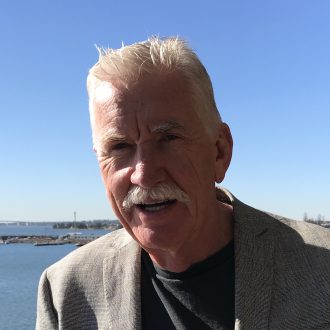This week we continue our leadership series with an interview with Phil Cox. Phil currently holds Directorships at the Hunter Valley Training Company, the Lake Macquarie Foundation and the Honeysuckle Community Group. Prior to this, Phil was the Director of Hunter TAFE, where he used staff development to achieve significant cultural change in his organisation. We asked Phil to talk to us about this.
Phil Cox – achieving cultural change through leadership development

Phil told us that when he was appointed as Institute Director (a position equivalent to CEO at an institution with around 60,000 enrolments), he found a workplace culture which suited the previous incumbent but did not suit his personal leadership style. He found the culture rather hierarchical, where successors were identified more on their seniority than through a structured succession plan. He also found senior people in roles that he felt they were not best suited to, so he commenced the change process using restructuring. While some people chose to move on, others found a new and more appropriate role within the organisation.
Phil’s next step was to create a Developing Leaders Program, with the focus placed firmly on emerging leaders, rather than the existing leadership team. A consultant was brought in to help develop the program and to collect extensive data on the participants. Phil emphasised that the support and involvement of the Deputy Institute Director was integral to the ongoing success of the program.
It was a full-year program, run over 5 years, with up to 45 participants a year. While some program elements will sound familiar, others will not:
- The program commenced with a process of research, assessment of current leadership culture and staff consultation to identify 10 leadership effectiveness behaviours.
- The program was open to everyone. All staff were encouraged to apply, whether they were permanent or temporary, full-time or part-time; and from all levels of the organisation.
- Phil launched the program personally, using emails, podcasts and visits to most of the 15 campuses to promote it.
- Applications were assessed against the 10-point behaviour plan, which ensured the focus was on potential rather than past achievement.
- Despite his demanding role, Phil personally interviewed all short listed applicants and devoted 3 days, 3 times a year to the program. He was involved in both the initial interview and in robust follow-up discussions on the participants’ development plans, ideas and innovation.
- Tools including the Birkman Method and Leadership Effectiveness Analysis 360 degree evaluations were used, and repeated during the year to assess progress.
- Development Action Plans were established for each participant in consultation with the consultant. All participants discussed these Action Plans withthe Executive Strategy Group – comprising the CEO, the CEO of a partner institution and a member of the Institute’s Advisory Committee, ensuring an external focus on the interests of clients.
- The consultant was available as a ‘help line’ for participants and discussed emerging issues with Phil regularly. The consultant also provided 1:1 coaching to all participants.
- Participants were given projects to undertake which allowed them to experience new roles and experiment with new ideas.
- Participants were also given opportunities to act in other positions, based on their career Action Plans rather than on seniority, and were supported in these roles.
Clearly, this was a program designed to implement major cultural change, with the CEO at the centre of the experience.
We asked about the outcomes. Phil said that the majority of the participants are now in leadership roles, either within the organisation or elsewhere. People who wanted a career change were encouraged to try new roles. Phil gave the examples of a part-time security guard who now works in a specialist support role; and two IT technical specialists, one of whom moved into marketing and the other into a faculty leadership role in Tourism and Hospitality.
The participants were highly motivated and were empowered to become change agents. Phil said he saw positive changes every week, as the desired new behaviours were increasingly adopted throughout the Institute.
The final benefit was for Phil, himself. Phil told us he found the enthusiasm of the participants infectious. For Phil, the program was exciting and motivating and it was very clear that this Leadership Program was one of the most rewarding aspects of his work at Hunter TAFE.
